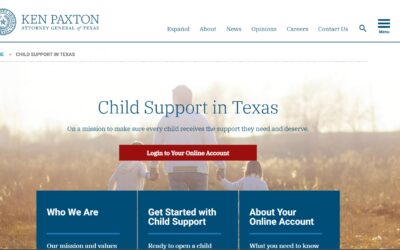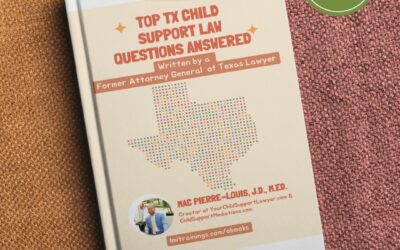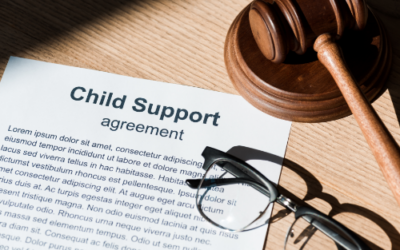Q&A: HOW IT WORKS IN TEXAS WHEN YOU RECEIVE CHILD SUPPORT FROM ONE PARENT BUT ALSO PAY CHILD SUPPORT TO ANOTHER
Imagine that mom Jane Doe receives $1000 each month in child support from dad John Doe for their daughter. Also imagine that Jane Doe has to now begin paying child support to another man, Don Juan, for their son. So, 3 adults, 2 kids, and a very interesting situation.
Question: Can the child support that Jane Doe receives from John Doe be used as earned “income” in calculating the support amount she is to pay to Don Juan? If the child support money she receives can be used in calculations, should it be allowed? Is it fair that support money received for one child is used to calculate the support amount due to another child? Or asked differently, is it fair that the amount of money intended for Don Juan’s son should depend on the amount of money John Doe pays for his daughter? What if John Doe stopped paying Jane Doe? Could Jane go argue to the judge that her “income” dropped, and should be allowed to pay less money to Don Juan?
The scenario above may seem like “legalese” or a fancy law school exercise, but know that, although rare, the Jane-John-Don child support effect does happen to many Texas families.
Answer: The multiple household issue of using Parent A’s support payment amount as Parent B’s income to be used to pay Parent C child support is addressed in Texas Law. Texas Family Code section 154.070 states that “child support received by an obligor shall be added to the obligor’s net resources” when calculating child support. So it’s simple, money that a parent like Jane receives as child support from one non-custodial parent (NCP) can used to determine the amount she herself should pay as an NCP.
The questions involving the fairness of using one obligor’s support payment to indirectly affect an unrelated child’s support amount can be reserved for late night philosophy debates now that you know the state legislature’s stance on the issue. Regarding whether Jane could successfully get a court to lower her support payment amount after John Doe stops paying his monthly $1000 is a unique situation that depends on her specific set of facts.
The above is for informational purposes only and does not constitute legal advice, nor does it create an attorney-client relationship between the writer and reader. It is prudent to speak with an attorney before making any major legal decision.
Mac Pierre-Louis, an attorney at The Law Office of Pierre-Louis & Carr, PLLC based in Houston, TX, writes about child support law issues. He is bar licensed only in the states of Texas and Florida.




